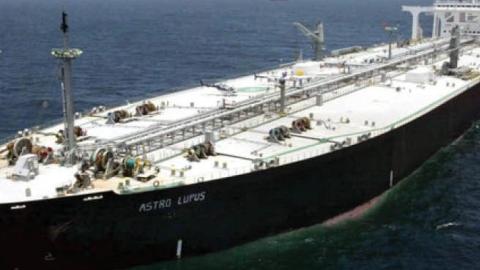The global collapse in oil prices due to the coronavirus and a production dispute between Russia and Saudi Arabia have pushed scores of tankers waiting off American ports for demand to return. While they are full with American oil, almost none of these tankers are American flagged. While that is not unusual, it is a major problem for national security.
Today, the United States military has access to only nine government and commercial tankers suitable for operations abroad, but it has projected it needs at least 80 tankers to transport fuel from oil refineries to American forces during a large war. There are another nearly 60 American flagged tankers that transport cargo among American ports, but they would need to mostly stay home to keep the domestic economy running. This lack of American tankers is not a new problem, but it has grown worse since the last United States military campaigns out in the Middle East.
In those operations, American troops counted on foreign tankers to carry their fuel overseas or bought fuel from local refineries. That may not work in the future. Many of the foreign tankers the United States military would rely on are now flagged by China, which built its own fleet of tankers and influences a critical portion of the world tanker market through financing, pooling agreements, and port management. These tankers are unlikely to be available to the United States military in any future crisis where China may be the adversary or may oppose American operations.
Most of the world tanker fleet is not controlled by China, but there is still no guarantee the United States can charter them. Foreign crews, many of whom are Chinese or Russian, may not want to sail into a conflict. Further, as with the current oil glut, tankers may not be available to move military fuels because they are full of oil or other refined products.
Without the tankers, Navy ships would be stuck in port, Air Force planes would be grounded, and Army and Marine units ashore would run out of gas. American forces would lack the ability to deploy to defend our allies, sustain operations, and could lose a war. Two simple and low cost moves could solve this problem. Establish a tanker security fleet of commercial American tankers and increase the proportion for United States military fuel bought from American refineries and not foreign ones.
Under a new tanker security fleet program, the government can provide a stipend to commercial tankers that operate under the American flag with American crews, in exchange for a commitment to be available in a crisis or conflict. This cost effective initiative would plug the big gap in military tanker capacity, provide jobs to American workers, and make American tanker companies competitive on the international market.
The military now buys most of its fuel overseas from foreign refiners. It is slightly cheaper in peace time but could prove dangerous for a war when foreign refineries near adversaries like China or Russia could come under attack or be pressured to not supply the United States military. If instead the government purchased about half of its overseas fuel from American refineries, that change would cost less than $30 million annually, or less than half a cent per gallon, and generate enough business transporting the fuel to yield seven additional American flagged tankers.
China banned the export of rare earth elements in a previous diplomatic crisis. It has threatened to stop exports of medical supplies to countries that criticize it during the pandemic. It could deny the United States use of Chinese tankers and threaten other foreign tankers during conflicts. It is time for the United States to bolster its own tanker fleet for commerce and, if necessary, for conflict. The creation of a tanker security fleet and purchasing more American fuel for the military are bipartisan proposals that must be quickly adopted to solve this critical shortage.
Read in The Hill


















